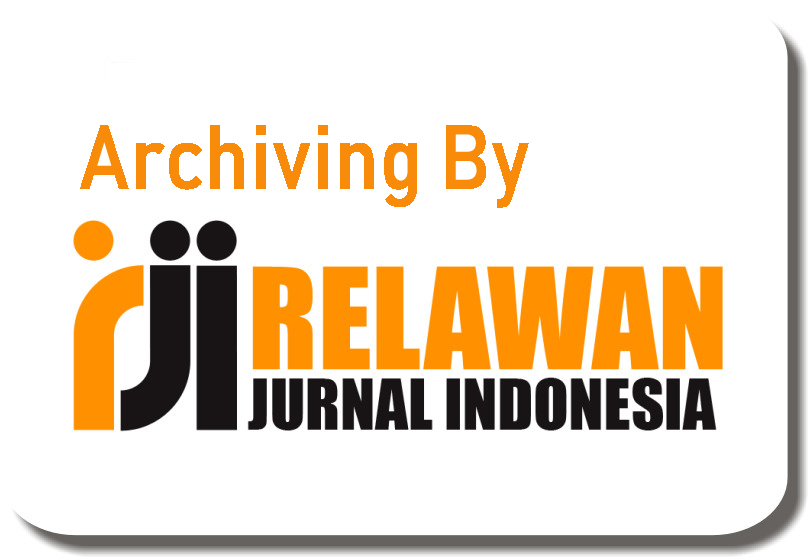Developing 3D Animation Materials for EFL Vocabulary Courses
Abstract
Media in Education has an important role in helping to provide students with a better understanding of the learning material being studied. The purpose of this Research and Development project is to develop 3D animated video as a learning material that is both free of copyright violations and tailored meets needs of the students for EFL vocabulary classes. This Research and Development project employ Addie Model with questionnaires, interviews, expert validation, with both large and small group trials form the basis of development. The findings materials have great credentials and the media have good qualifications so that learning media can be used in learning process. This 3d video animation project hoped can help lecturers and teacher in the teaching and learning process and provide comprehensible learning media that for EFL students and a reference material for development in subsequent research.
Keywords
Full Text:
PDFReferences
Ahdan, S., Putri, A. R., & Sucipto, A. (2020). Aplikasi M-Learning Sebagai Media Pembelajaran Conversation Pada Homey English. Sistemasi, 9(3), 493. https://doi.org/10.32520/stmsi.v9i3.884
Ahmadi, Dr. M. R. & Guilan University, Guilan, Iran. (2018). The Use of Technology in English Language Learning: A Literature Review. International Journal of Research in English Education, 3(2), 115–125. https://doi.org/10.29252/ijree.3.2.115
Alqahtani, M. (2015). The importance of vocabulary in language learning and how to be taught. International Journal of Teaching and Education, III(3), 21–34. https://doi.org/10.20472/TE.2015.3.3.002
Annisa, P., & Muryanti, E. (2022). Efektivitas Video Animasi terhadap Pengenalan Kosakata Bahasa Inggris Anak Usia Dini. Jurnal Pelita PAUD, 6(2), 216–221. https://doi.org/10.33222/pelitapaud.v6i2.1838
Azzahra, S. (2023). Penggunaan Film Kartun Sebagai Media Pembelajaran Bahasa Inggris. Karimah Tauhid, 2(2), 467–472. https://doi.org/10.30997/karimahtauhid.v2i2.7808
Diah, L., Adnyani, S., Suprianti, G. A. P., Putu, N., Marsakawati, E., Deby, P., & Narotama, A. (2021). Powtoon as the Implementation of Edutainment for Young Learners
Diva Erlina Septiani, Purwanti, I. T., & Prawati, A. (2024). Developing Animated Video of Describing People for Vocabulary Learning. Eternal (English Teaching Journal), 15(2), 216–228. https://doi.org/10.26877/eternal.v15i2.475
Drljača, D., Latinović, B., Stanković, Ž., & Cvetković, D. (n.d.). ADDIE model for development of e-courses
Guzmán Gámez, D. Y., & Moreno Cuellar, J. A. (2019). The use of Plotagon to enhance the English writing skill in secondary school students. Profile Issues in TeachersProfessional Development, 21(1), 139–153. https://doi.org/10.15446/profile.v21n1.71721
Hossain, M. I. (2015). Teaching Productive Skills to the Students: A Secondary Level Scenario. A Thesis, 1–90
Haq, F. Y., Syihabudin, Abdurrahman, M., & Supriadi, R. (2021). Wordwall: a Digital Game Application to Increase the Interest of Rabbaanii Junior High School’s Students in Learning Arabic Vocabulary. The 4th Proceeding International Conference on Arabic Language and Literature (ICALL) 2021, 38-47. Retrieved from http://proceedings2.upi.edu/index.php/ical/index
Indah, H., & Muryanti, E. (2023). Efektivitas Media Animasi Interaktif Untuk Pengenalan Kosakata Bahasa Inggris Pada Anak Usia Dini . Wahana Didaktika : Jurnal Ilmu Kependidikan, 21(3), 692–702. https://doi.org/10.31851/wahanadidaktika.v21i3.12947
Irmayunda, C., Sofyan, A., Nira, E. (2020). The Use of Animation videosss to Improve Students’ Speaking Skill. Research in English and Education Journal, 2(1), 1–45
Kurniati. (2016). The Effectiveness Of Animation videos In Teaching Speaking To Junior High School. JELE (Journal of English Language and Education), 2(1). https://doi.org/10.20473/jovin.v1i1.19873
Ardayati, A. (2018). Film as A Media Used by Teachers to Teach Writing for Tertiary Level Students. Linguistic, English Education and Art (LEEA) Journal, 1(2), 180–192. https://doi.org/10.31539/leea.v1i2.186
Molenda, M. (2003). In search of the elusive ADDIE model. Performance Improvement, 42(5), 34–36. https://doi.org/10.1002/pfi.4930420508
Munir, F. (2016). The Effectiveness of Teaching Vocabulary by Using Cartoon Film toward Vocabulary Mastery of EFL Students. Journal of English Language Teaching and Linguistics, 1(1), 13. https://doi.org/10.21462/jeltl.v1i1.20
Nerissa, M., Pulungan, A. H., & Erlita, Y. (2020). Developing Media Based On Powtoon In Teaching Writing Recount Text For Grade Viii Students In Smp Muhammadiyah 1 Medan. REGISTER: Journal of English Language Teaching of FBS-Unimed, 8(3). https://doi.org/10.24114/reg.v8i3.20896
Rindawati, T., Thamrin, L., & Lusi, L. (2022). Penggunaan Media Audio Visual Film Kartun Dalam Pembelajaran Kosakata Bahasa Mandarin Pada Siswa SD LKIA. Jurnal Tunas Bangsa, 9(1), 1–10. https://doi.org/10.46244/tunasbangsa.v9i1.1722
Nurdini, H., Marlina, L., & Journal, V. (2017). Vocabulary Journal As a Learning Tool for Students in Learning Vocabulary Through Reading. Journal of English Language Teaching, 6(1), 39–59
Rosmiati, M. (2019). Animasi Interaktif Sebagai Media Pembelajaran Bahasa Inggris Menggunakan Metode ADDIE. Paradigma - Jurnal Komputer Dan Informatika, 21(2), 261–268. https://doi.org/10.31294/p.v21i2.6019
Sari, I. P., Niswa, K., Purba, A., Parlina, I., Kusumawardhani, P., & Sormin, R. K. (2024). Utilizing Plotagon Animation to Improve Students’ Enthusiasm in English Language Subjects. Journal of Education and Learning Research, 1(2), 82–91. https://doi.org/10.62208/jelr.1.2.p.82-91
Sugiyono. (2015). Metode Penelitian Pendidikan (22nd ed.). Alfabeta
Teplá, M., Teplý, P., & Šmejkal, P. (2022). Influence of 3D models and animations on students in natural subjects. International Journal of STEM Education, 9(1), 65. https://doi.org/10.1186/s40594-022-00382-8
DOI: https://doi.org/10.31004/jele.v10i2.773
Refbacks
- There are currently no refbacks.
Copyright (c) 2025 Muhammad Fahreza Hidayat, Hesty Widiastuty, Sri Normuliati

This work is licensed under a Creative Commons Attribution-ShareAlike 4.0 International License.



